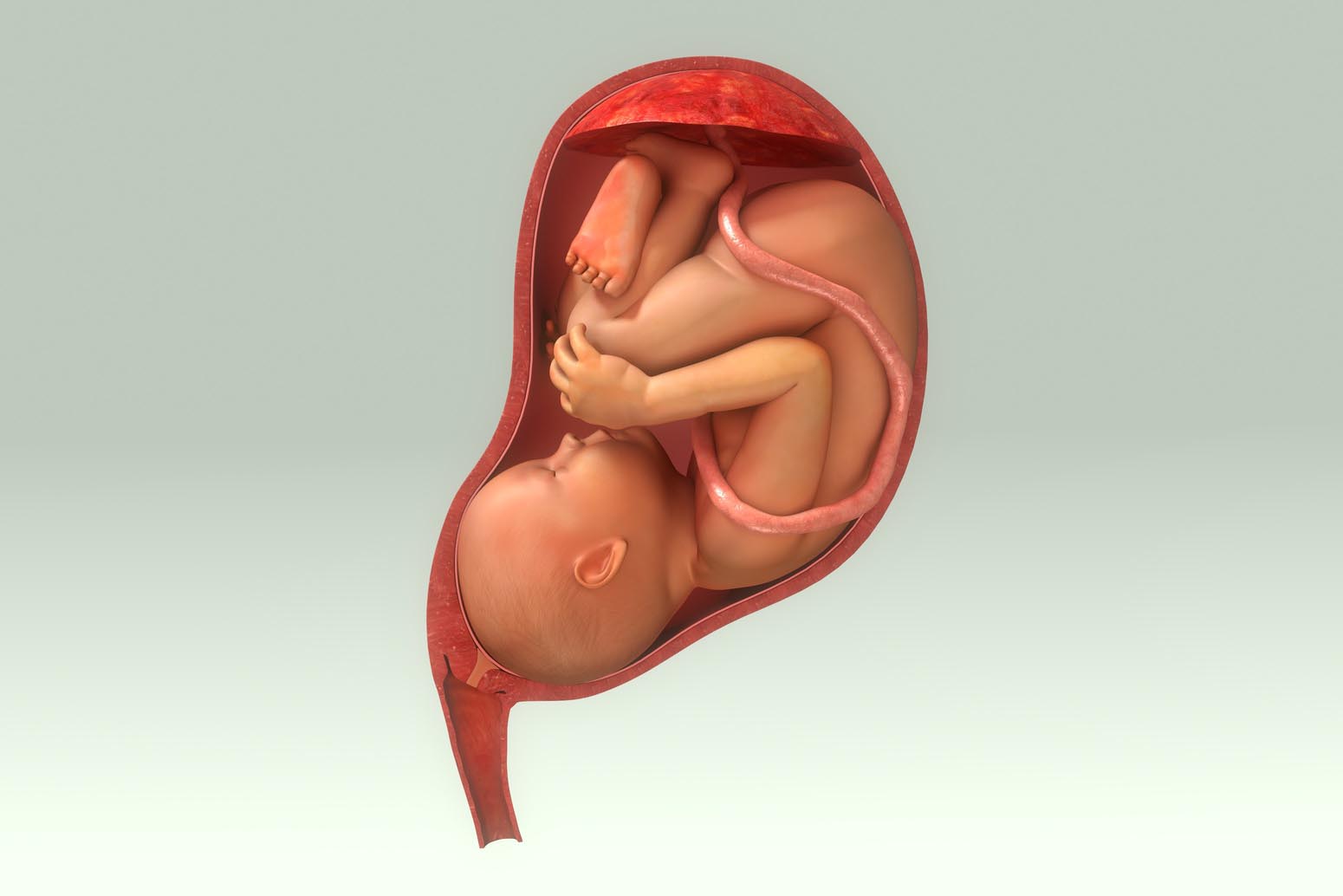• Fatty diet
• Placental damage
• Fetal gut development
-
What is already known on this topic
Maternal diet-induced obesity is associated with offspring metabolic disease, but the exact mechanisms are still unclear. -
What this research adds
In mice, diet-induced obesity decreased the levels of maternal gut short-chain fatty acids, resulting in impaired gut barrier integrity and fetal intestinal inflammation. Placenta from obese mothers showed signs of inflammation and lack of oxygen. -
Conclusions
The study suggests that diet-induced changes in the maternal gut microbiota composition may contribute to altered placental and fetal gut development.
Diet-induced obesity could affect placental and fetal gut development, researchers have found. The study, done in mice and published in The Journal of Physiology, may shed light on some of the mechanisms that link maternal obesity with metabolic conditions in the offspring.
Obesity and excess intake of fats are linked to increased risk of pregnancy complications, altered placental development and fetal overgrowth. Previous animal studies have shown that maternal obesity is associated with offspring metabolic disease, but the exact mechanisms are still unclear.
Wajiha Gohir and Katherine Kennedy, at McMaster University, and their colleagues fed pregnant mice a high-fat diet to study its impacts on maternal gut microbiota, gut inflammation and placental inflammation, and fetal intestinal development.
Fatty diet
Compared to female mice fed a low-fat diet, those fed a high-fat diet had higher levels of Akkermansia and Clostridium bacteria and a lower abundance of Lachnospira and Ruminococcus bacteria in their gut. Their intestinal level of butyrate, a short-chain fatty acid produced by bacteria such as Lachnospira and Ruminococcus, also tended to be lower, as were levels of a specific short-chain fatty acid receptor.
Maternal high-fat diet also resulted in an increase in the levels of gut inflammatory and immune cell markers.
Placental damage
To assess whether shifts in the gut microbiota make-up were associated with changes in intestinal function, the researchers looked at the integrity of the intestinal barrier.
Pregnant mice fed a high-fat diet had impaired barrier integrity and showed high levels of inflammatory molecules in their blood. These circulating inflammatory factors resulted in an increase in molecules that signal a lack of oxygen in the placenta.
What’s more, high-fat dietary intake altered markers of placental growth and development. In particular, the placenta from obese mothers showed blood vessel immaturity and signs of inflammation.
Fetal gut development
The researchers also found increased levels of gut inflammatory molecules in the offspring of obese mothers, which point to fetal intestinal cell stress. Maternal high-fat diet also affected the development of the fetal gut barrier.
The study suggests that diet-induced changes in the maternal gut microbiota composition may contribute to altered placental and fetal gut development. However, more work is required to pinpoint the inflammatory events that are initiated in response to changes in maternal gut microbiota and intestinal barrier integrity.
Because gut microbes and the gut barrier play a key role in mediating diet-induced obesity, it is likely that maternal intestinal changes could contribute to increase the risk of obesity in the offspring, the scientists say.









